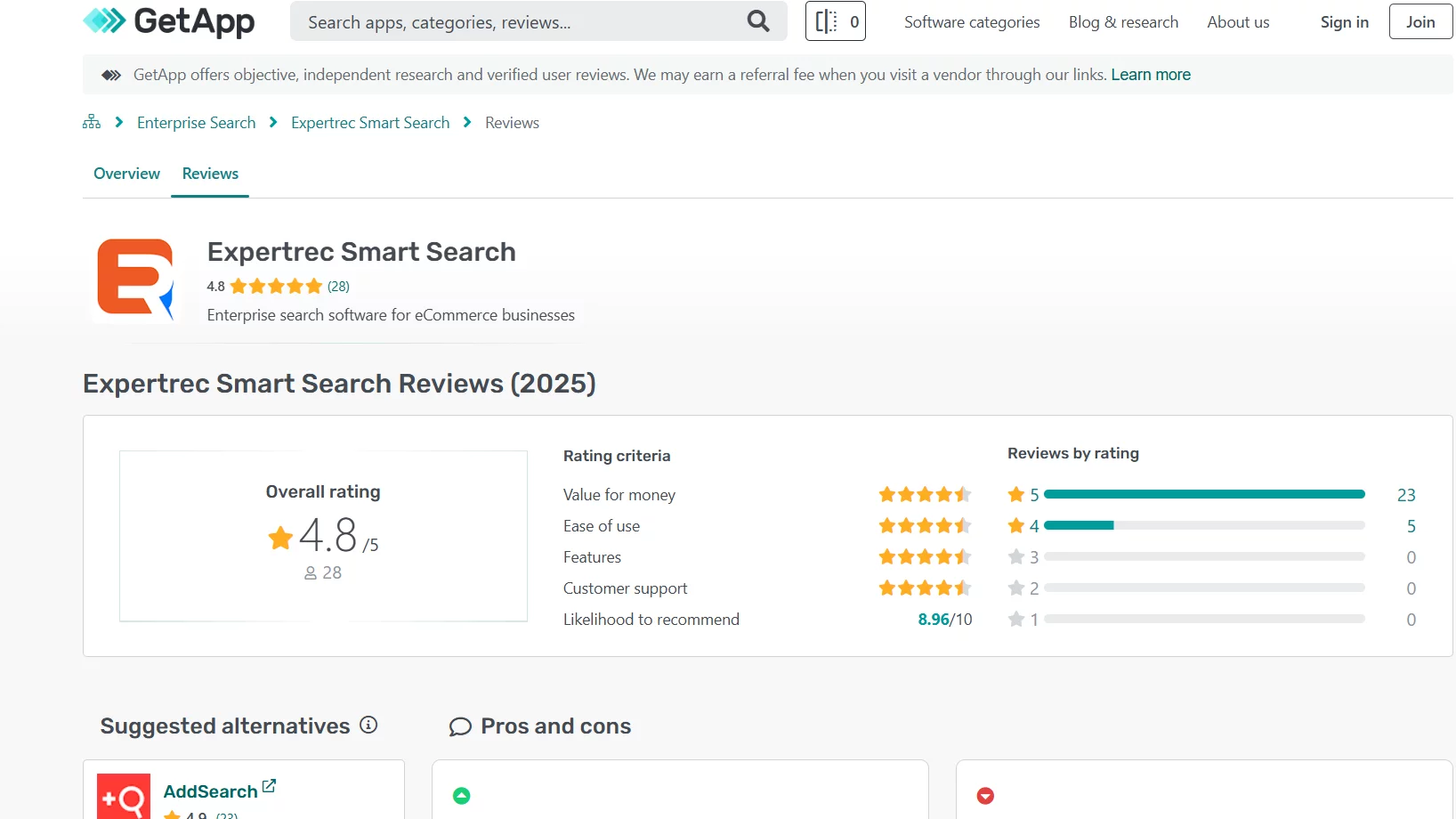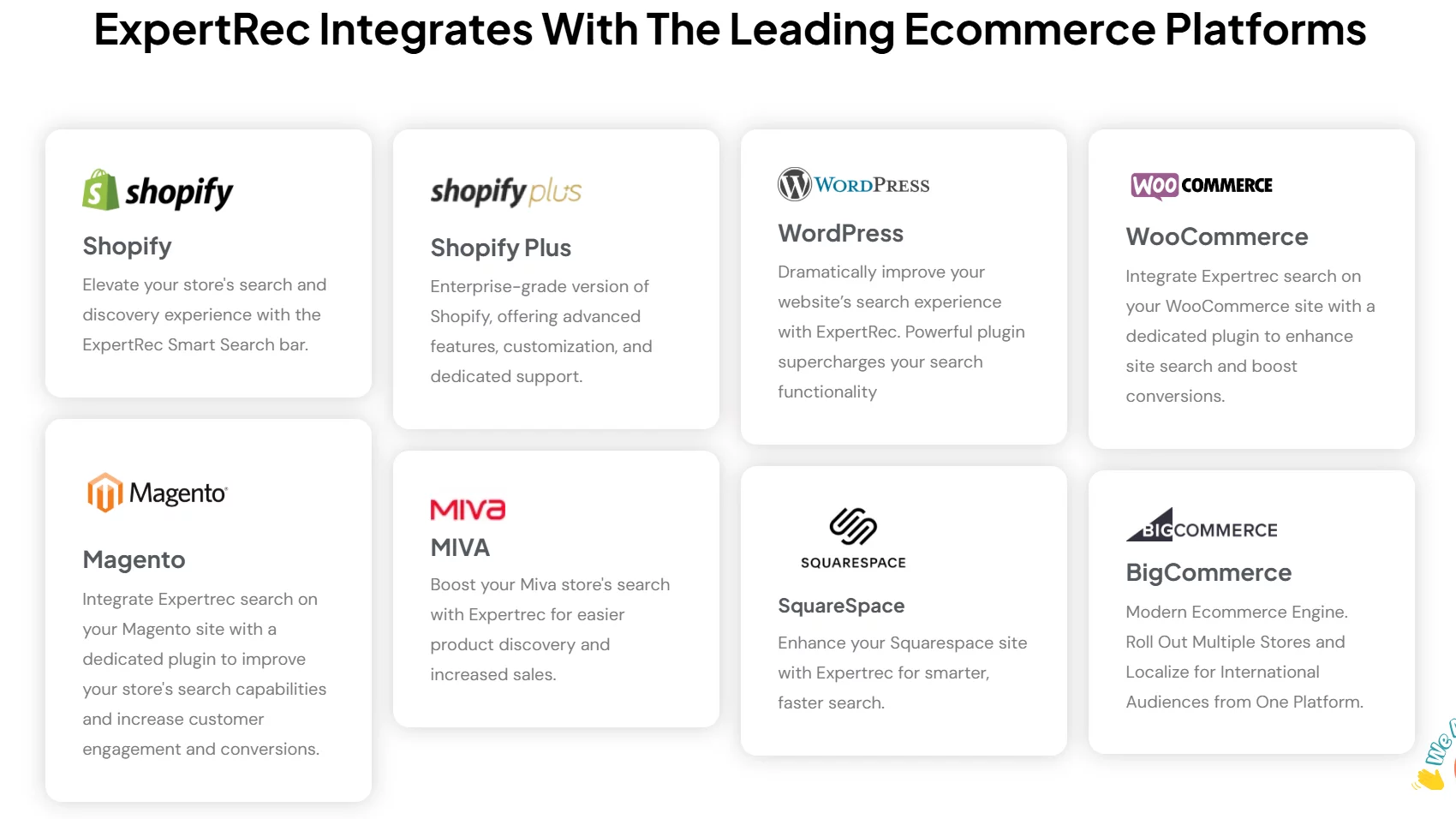As online catalogs grow in size and complexity, traditional keyword-based search engines are reaching their limits. Shoppers often enter vague or non-standard queries, expecting instant, accurate results. Yet standard search engines struggle with intent recognition, synonyms, typos, and natural language.
That’s where vector search steps in a next-generation approach that leverages AI to improve how users find products, even when their queries don’t match product data exactly.
In this blog, we’ll explore:
What vector search is
Why it’s increasingly essential for eCommerce
Whether it’s worth implementing
Alternatives and better solutions
What is Vector Search?
Vector search, also known as semantic search, is an advanced search method that compares the meaning of queries and product data instead of matching keywords.
It works by transforming both search queries and product descriptions into vectors numerical representations in a high-dimensional space. The distance between these vectors indicates how similar the query is to a product, enabling intent-based product discovery.
Technical Breakdown:
Embedding Models: Natural Language Processing (NLP) models such as BERT, SBERT, or OpenAI’s CLIP convert text (or images) into vector representations.
Vector Indexing: Vectors are stored in special data structures like FAISS, HNSW, or Annoy, optimized for Approximate Nearest Neighbor (ANN) search.
Similarity Search: Instead of checking for word overlap, the engine finds the closest vectors in the space returning results based on semantic proximity.
This means a user typing “outdoor running shoes” may also get results for “trail sneakers” or “hiking runners” even if those exact words aren’t in the product catalog.
Why Traditional Search Falls Short
Most eCommerce platforms use lexical (keyword-based) search, where queries must closely match product metadata. This method has several limitations:
Poor synonym support (e.g., “sofa” vs “couch”)
Fails on fuzzy or vague queries
Struggles with natural language phrases (e.g., “shoes good for snow”)
Ignores visual similarity if searching by image
This can lead to:
Poor product discovery
Lower conversion rates
How Does Vector Search Actually Work?
At a high level, vector search uses AI to understand meaning, not just words. Instead of matching exact keywords, it transforms both search queries and product data into vectors which are basically lists of numbers that represent meaning in mathematical form.
This is done using embedding models like BERT, Sentence-BERT, or CLIP. These deep learning models are trained on massive datasets and can recognise things like synonyms, context, and user intent. For example, the phrase “leather hiking boots” becomes a vector that captures the entire idea not just the individual words.
Once every product in your catalog is converted into vectors, they’re stored in a vector index. This index uses smart algorithms like FAISS (Facebook AI Similarity Search), HNSW, or Annoy to make searching fast even if you have millions of products.
When someone searches, say, “boots for snow,” the same AI model turns that phrase into its own vector. Then, the engine looks for product vectors that are closest to the query vector in this high-dimensional space.
It does this using similarity measurements like cosine similarity (which looks at the angle between two vectors) or Euclidean distance (which checks how far apart they are). The closer two vectors are, the more relevant the result.
And because it’s all based on meaning, your site can return great results even if the search terms don’t exactly match product titles. For example, it might suggest “insulated winter footwear” for a query like “shoes for snow.”
To handle large catalogs and real-time changes, these vector systems are often distributed across servers, sharded for speed, and designed to support live updates when products are added or removed.
In short: vector search doesn’t just find the right words it finds the right intent. That’s what makes it so powerful for modern eCommerce.

Benefits of Vector Search in eCommerce
1. Intent Recognition
Vector search understands what the user means, not just what they typed. This is particularly useful for long-tail queries, conversational searches, or voice queries.
2. Semantic Matching
Even if the product doesn’t contain the query word, vector search can match it based on related meaning. For example:
Query: “laptop for designers”
Match: “16GB MacBook Pro with M3 GPU”
3. Multimodal Search (Text + Image)
Vector search can be extended to images. Platforms like Expertrec enable users to search using an image, which gets converted into a visual vector and matched with similar product vectors.
4. Improved Personalization
When combined with user behavior vectors, results can be tuned to each user’s preferences and shopping patterns.
5. More Conversions, Fewer Drop-offs
By reducing irrelevant results and zero-result queries, vector search keeps users engaged and increases the likelihood of purchase.
Is Vector Search Worth Using in eCommerce?
Yes, but with caveats. While vector search offers incredible benefits, it can be technically complex and resource-intensive to implement from scratch.
Challenges include:
Generating and storing embeddings for every product (text + image)
Keeping vector indexes updated as inventory changes
Handling multilingual queries
Scalability issues with large product catalogs
Integrating with existing search UI/UX
If you lack a strong AI/ML development team, implementing your own vector search engine using open-source tools like FAISS or Elasticsearch’s kNN module can be daunting.
Are There Better, Easier Alternatives?
While large platforms like Amazon and Google Shopping are already using vector search at scale, most small to mid-sized businesses struggle with implementation.
That’s where Expertrec becomes a game-changer.
Expertrec: Simplifying Vector Search for eCommerce
Expertrec makes advanced vector-based search accessible, affordable, and scalable for eCommerce businesses -without requiring a data science or engineering team.
Key Features:
1. AI-Powered Semantic Search
Expertrec converts both user queries and product data into vector embeddings, ensuring high-accuracy matches even for vague or conversational queries.
2. Multi-Language & Voice Support
Its vector engine understands queries in multiple languages and is optimized for voice search, accommodating global users with ease.
3. Visual Search
Upload a product image to find visually similar items. Useful for fashion, home decor, and electronics.
4. Hybrid Ranking
Combines traditional keyword relevance with vector similarity and business-driven ranking rules (e.g., bestsellers, new arrivals).
5. No-Code Setup
No complex integration or AI modeling required. Just embed the search bar and configure the index via a friendly dashboard.
6. Customizable UI and Ranking
Unlike rigid platforms, Expertrec allows you to influence ranking logic, promote products, or tailor the search experience to your brand.
Performance Metrics:
Up to 40% increase in conversion from site search
30–50% reduction in zero-result queries
Improved mobile UX and faster page interactions

Integrations:
-
Shopify
-
WooCommerce
-
Magento
-
BigCommerce
-
Custom sites via API

Final Verdict: Vector Search Is the Future
The shift from keyword to intent-based search is not a trend—it’s a necessity. With growing catalog sizes, natural language queries, and increasing user expectations, vector search is critical for improving product discovery, personalization, and ultimately, conversion.
While building vector search in-house can be challenging, Expertrec provides a powerful, easy-to-integrate solution that brings the full power of AI and semantic understanding to your storefront—without the engineering headache.
If you’re ready to modernize your eCommerce search and boost conversions, Expertrec is your smartest step forward.
Frequently Asked Questions (FAQs)
Vector search is a semantic search method that uses AI to understand the meaning of user queries and return relevant results by comparing vector representations of data instead of keywords.
Q2. How is vector search different from traditional search?
Traditional search matches exact keywords, while vector search understands context and intent, returning more accurate results even if the query doesn’t contain exact product keywords.
Q3. Do I need to build my own AI model to use vector search?
Not necessarily. With platforms like Expertrec, you can leverage ready-to-use vector search powered by pretrained models, without building or training your own models.
Q4. Can Expertrec support image-based vector search?
Yes. Expertrec supports multimodal (text and image) vector search, allowing users to find visually similar items using image uploads.
Q5. Is vector search suitable for small eCommerce stores?
Absolutely. Vector search benefits all store sizes, especially those with large or diverse catalogs. Expertrec’s scalable pricing and plug-and-play interface make it viable for SMBs as well.
Q6. How does Expertrec handle indexing and performance?
Expertrec uses optimized vector indexes and scalable infrastructure to ensure fast response times even for large catalogs, updating product embeddings in real time as inventory changes.
Q7. What platforms does Expertrec integrate with?
Expertrec integrates with Shopify, Magento, WooCommerce, BigCommerce, and custom platforms via API or JS snippet.




